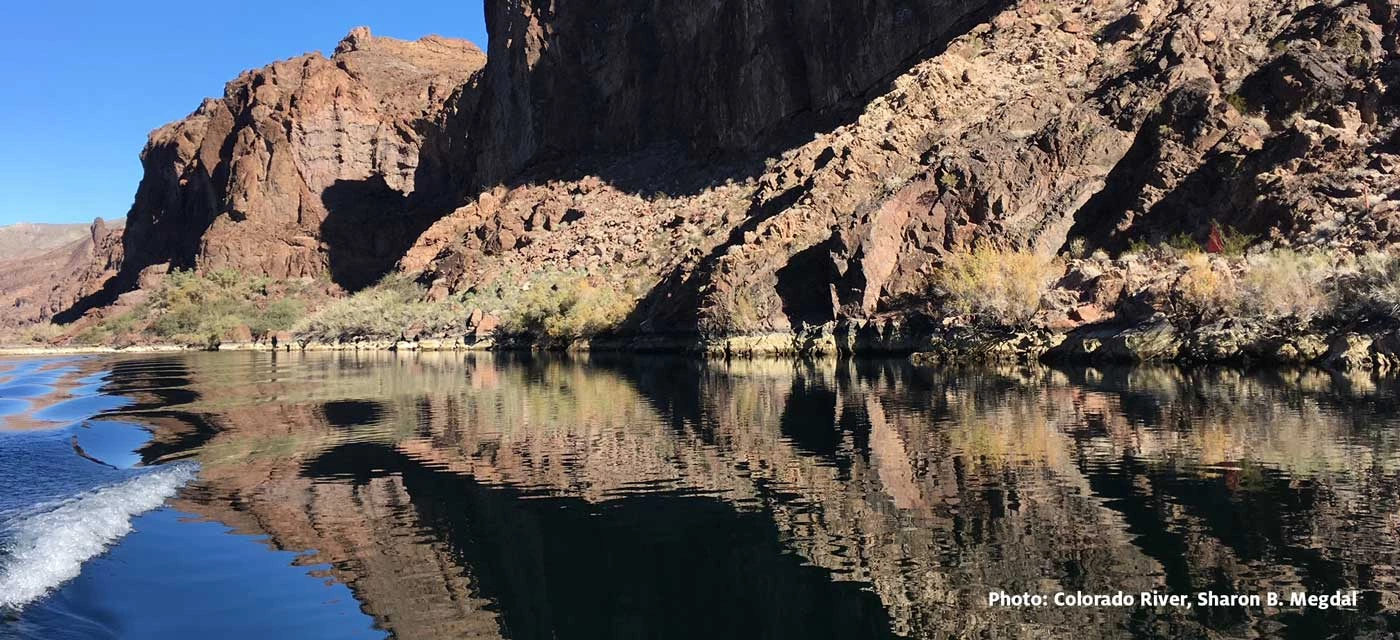
It is that season when we look back at the year about to end and ahead toward the coming year. What does one say at the end of this COVID-19 pandemic year? The pandemic changed things in ways we never could have imagined. We had to minimize or eliminate in-person interactions. Dislocation was experienced everywhere, including in the educational realm. Our lives were profoundly affected.
Regionally, the year was disappointing in terms of precipitation and temperatures. In 2020, we experienced the first federally required curtailment of deliveries of Colorado River water by the Central Arizona Project. We will be in Tier Zero of cutbacks again in 2021. Absent good winter precipitation and spring run-off, we could see deeper, more impactful cuts in 2022.
Individually and collectively, we continue to face significant uncertainties in both our personal and professional lives.
As I look back at 2020, the year seems to have gone by quickly while also plodding along slowly. In prior Reflections, I have written about how our work at the WRRC has continued. I think adaptation is the operative word, as we all have had to adapt. While acknowledging the tragedies and challenges experienced by so many, we have to be thankful for the positives. Our programs pivoted successfully to virtual delivery. Our annual conference was favorably reviewed. Our Brown Bag webinar series is thriving. Subscriptions to our Weekly Wave are growing. Arizona Project WET is educating K-12 teacher and their students in novel and exciting ways. Applied research projects continue. Student workers are engaged in our various programs. We will provide a fuller accounting of 2020 when we compile our annual report and assemble our strategic plan metrics.
I started and ended the year speaking about the concept of wicked water problems and efforts to resolve them. Our water challenges seem only to be growing, meaning the hard work of securing clean and reliable water is more important than ever. Though my service as an elected member of the board of the Central Arizona Project officially ends on December 31, after 12 years, I do not expect to have time on my hands. Ongoing and new projects and programs will keep me quite busy. I am looking forward to teaching my graduate course “Water Policy in Arizona and Semi-arid Regions” this Spring, which will be offered as a fully online class. Delivering it online reduces uncertainty and avoids mid-semester pivots in one direction or another. The students, guest lecturers, and I will be meeting via Zoom for the entire semester.
This is the time to step back and reflect on the year 2020, to consider the devastating impacts of this virus on communities and families along with what we learned about ourselves and our adaptability. It is time to consider the possibilities of a better 2021, when we hope that sufficiently available and administered vaccinations make it safe to see our family, friends, and colleagues again. Please join me in taking a deep breath as we get ready to dive into the unpredictable adventures of a new year.

